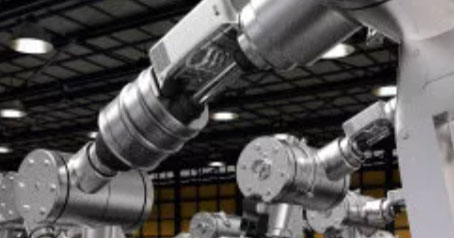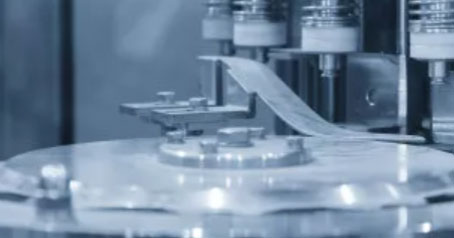These pumps have become the most important part of all domestic and industrial applications. There are several types of pumps on the market and one of them is the piston pump. A piston pump uses a piston for fluid compression.
1. What is a piston pump?
A pump that uses a piston to pump a fluid from one place to another is called a piston pump. In this pump, the piston moves up and down in a compression cylinder. This piston is connected to the crankshaft, which is powered by an electric motor and drives the piston. A piston pump contains inlet and outlet check valves, a connecting rod, crankshaft and piston. A hand pump is the most common example of a piston pump. A hand pump uses a piston to draw water. This piston is connected to the handle of the pump. When the handle is moved down, it forces the piston down and draws water into the cylinder. Likewise, when the handle is operated, the handle moves up and the piston moves up, opening the drain valve and expelling the water.
Piston pumps, also known as reciprocating pumps, are a type of displacement pump in which a high-pressure seal reciprocates with a piston. In layman's terms, they are usually used to move liquids or compressed gases, achieving high pressure operation without a significant impact on the flow rate. For this reason, they are often found in water irrigation or transfer systems. Piston pumps can be powered by steam or turbines, electric motors or hydraulic systems and drive mechanisms. They are capable of withstanding varying pressures of up to 10,000 psi and are used to move lubricants along mechanical shafts. During this process the pressure increases and forces the fluid through the pump, pulsating as a result of the piston movement.
2. Advantages of piston pumps
With a huge, wide range of pressures, piston pumps are capable of reaching incredibly high pressures and can be controlled without affecting the flow rate. They are very clever packages with many uses and advantages. In addition to the above, they have a continuous discharge rate, which means they can move viscous fluids, large quantities of gas and even solids throughout the machine. A major advantage of piston pumps is therefore efficiency, as well as their practicality and how they move fluids through the machine, regardless of viscosity.
If they are properly maintained, this also means that they have a long service life and will serve you throughout the process.
Piston pumps are vital to many businesses and are an incredible feat of engineering, having been used in certain industries for a long time. As such, their main benefit is their usefulness to the operation, which often proves vital when they are in use.
 French
French
 Portuguese
Portuguese
 Russian
Russian
 German
German
 Spanish
Spanish
 Japanese
Japanese
 Korean
Korean
 Irish
Irish
 Greek
Greek
 Turkish
Turkish
 Italian
Italian
 Danish
Danish
 Romanian
Romanian
 Indonesian
Indonesian
 Czech
Czech
 Afrikaans
Afrikaans
 Swedish
Swedish
 Polish
Polish
 Basque
Basque
 Catalan
Catalan
 Esperanto
Esperanto
 Hindi
Hindi
 Lao
Lao
 Albanian
Albanian
 Amharic
Amharic
 Armenian
Armenian
 Azerbaijani
Azerbaijani
 Belarusian
Belarusian
 Bengali
Bengali
 Bosnian
Bosnian
 Bulgarian
Bulgarian
 Cebuano
Cebuano
 Chichewa
Chichewa
 Corsican
Corsican
 Croatian
Croatian
 Dutch
Dutch
 Estonian
Estonian
 Filipino
Filipino
 Finnish
Finnish
 Frisian
Frisian
 Galician
Galician
 Georgian
Georgian
 Gujarati
Gujarati
 Haitian
Haitian
 Hausa
Hausa
 Hawaiian
Hawaiian
 Hebrew
Hebrew
 Hmong
Hmong
 Hungarian
Hungarian
 Icelandic
Icelandic
 Igbo
Igbo
 Javanese
Javanese
 Kannada
Kannada
 Kazakh
Kazakh
 Khmer
Khmer
 Kurdish
Kurdish
 Kyrgyz
Kyrgyz
 Latin
Latin
 Latvian
Latvian
 Lithuanian
Lithuanian
 Luxembourg
Luxembourg
 Macedoniar
Macedoniar
 Malagasy
Malagasy
 Malay
Malay
 Malayalam
Malayalam
 Maltese
Maltese
 Maori
Maori
 Marathi
Marathi
 Mongolian
Mongolian
 Burmese
Burmese
 Nepali
Nepali
 Norwegian
Norwegian
 Pashto
Pashto
 Persian
Persian
 Punjabi
Punjabi
 Serbian
Serbian
 Sesotho
Sesotho
 Sinhala
Sinhala
 Slovak
Slovak
 Slovenian
Slovenian
 Somali
Somali
 Samoan
Samoan
 Scots Gaelic
Scots Gaelic
 Shona
Shona
 Sindhi
Sindhi
 Sundanese
Sundanese
 Swahili
Swahili
 Tajik
Tajik
 Tamil
Tamil
 Telugu
Telugu
 Thai
Thai
 Ukrainian
Ukrainian
 Urdu
Urdu
 Uzbek
Uzbek
 Vietnamese
Vietnamese
 Welsh
Welsh
 Xhosa
Xhosa
 Yiddish
Yiddish
 Yoruba
Yoruba
 Zulu
Zulu







